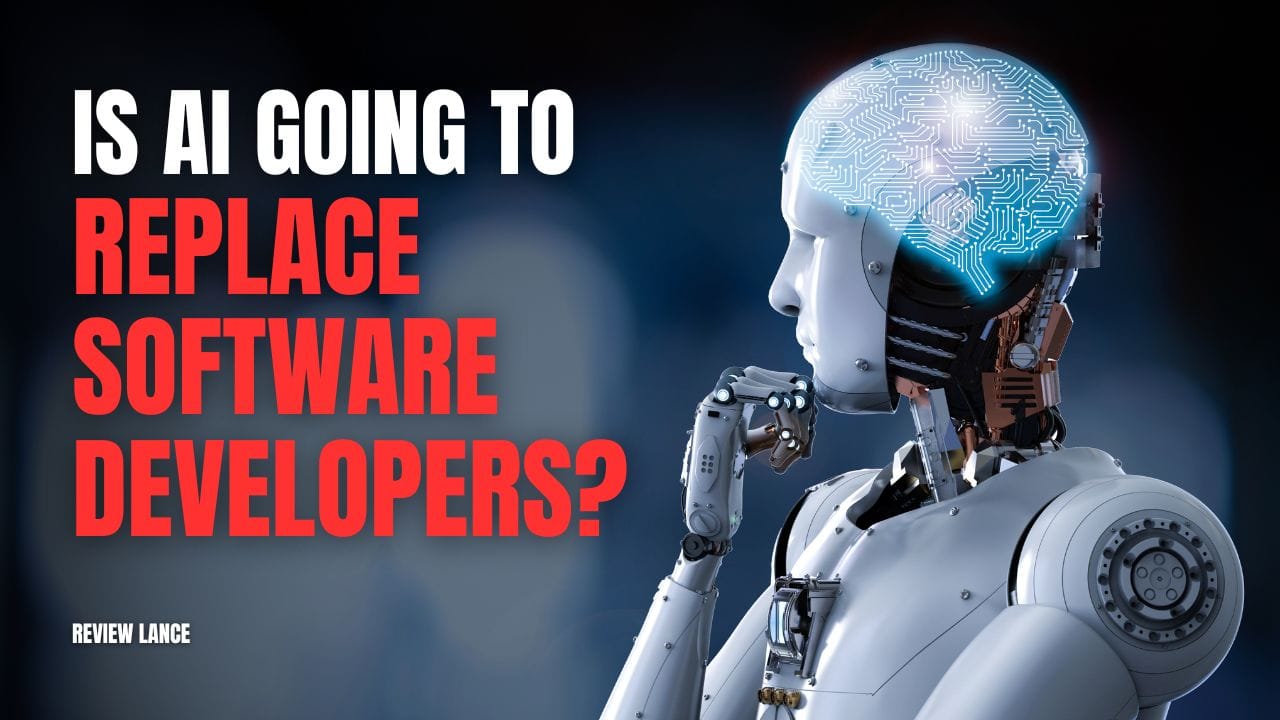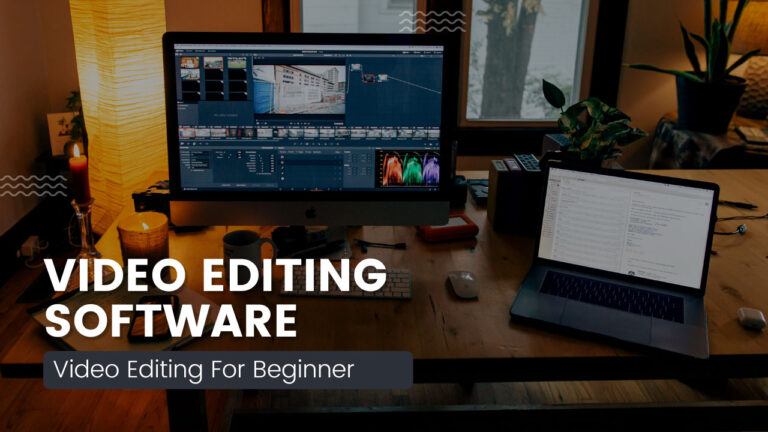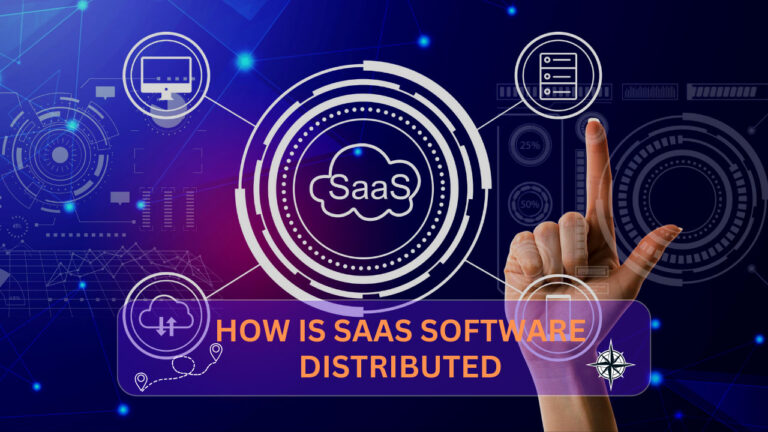Will Software Engineers Be Replaced by AI? Unveiling the Truth
Software engineers are unlikely to be completely replaced by AI. AI may augment their tasks, but creative and complex engineering will still need human intellect.
The future of software engineering intertwines with advancements in artificial intelligence (AI), leading to mixed speculations and predictions. AI is indeed transforming the landscape of numerous professions, including software engineering. With AI’s ability to automate routine tasks, there’s a growing impression that it may soon replace human jobs.
Software engineering, however, is a multifaceted field requiring critical thinking, problem-solving, and innovative design — skills that are inherently human. While AI can assist and streamline the coding process, the conceptualization and understanding of nuanced requirements in software development are beyond a machine’s current capability. The symbiotic relationship between AI and software engineers suggests more of an evolution in the role rather than a replacement. Human oversight, ethical considerations, and creative input remain indispensable in this field, assuring the continued demand for skilled software engineers.

Credit: eightify.app
The Ai Revolution
The AI Revolution carries the winds of change to the realm of software engineering. With artificial intelligence quickly evolving, the big question is whether AI will one day replace software engineers. Let’s explore how this technological wave might transform the industry.
Emergence Of Ai In Software Development
Artificial intelligence has started carving out a niche in software development. Tools powered by AI assist developers in code completion, bug fixes, and even writing simple programs. AI has the potential to increase efficiency and accuracy but is it enough to outperform human expertise? Let’s delve into its impact on this ever-evolving field.- AI Code Assistants: They help by suggesting code snippets.
- Automated Testing: AI improves software quality by quickly identifying defects.
- Maintenance and Debugging: AI systems can predict and fix issues without human intervention.
Historic Shifts In Technology Jobs
History has witnessed technology shifts altering job landscapes. The introduction of computers, for instance, ended some jobs but also created new ones. Software engineering itself was born out of the need to build and maintain emerging digital technologies.| Shift | Technology | Impact on Jobs |
|---|---|---|
| 1950s | Mainframe Computers | New IT roles emerged |
| 1980s | Personal Computers | Shift from large systems to individual computing |
| 2000s | Internet Boom | Expansion of software and web development jobs |
| Present | AI Integration | Adaptation and new roles for developers |
Current Ai Capabilities
The landscape of software development is constantly evolving with AI’s rapid advancements. AI tools today aren’t just a futuristic dream. They perform tasks that once required extensive human effort. Let’s explore how AI is shaping code generation and refining the debugging process. Automated Code Generation
Automated Code Generation
AI has made significant strides in the realm of automated code generation. Platforms now exist that can construct code snippets, or even entire programs, with just a description of functionality. These platforms use advanced algorithms to translate human instructions into executable code. Here’s what AI-powered code generation offers:
- Increased efficiency: Code generates quickly, saving time for developers.
- Reduced errors: AI can reduce human mistakes and improve code quality.
These tools use vast code databases to learn and improve with each task. They’re not flawless but show promise. AI in Debugging and Testing
Ai In Debugging And Testing
Debugging can be a painstaking endeavor for software engineers. Thankfully, AI is enhancing this domain as well. AI-driven debugging tools can pinpoint errors in code faster than ever. AI tools also assist with:
- Identifying patterns in code that could lead to issues.
- Suggesting fixes for detected bugs.
- Automating repeat test cases to ensure code robustness.
By automating testing, AI helps maintain a high standard of software reliability. Developers can focus on complex tasks, letting AI handle the repetitive ones. Conclusion No conclusion as per the instructions.
Human Vs Machine
Creative Problem-solving
Imagination fuels innovation in technology. Humans excel at this. Creative problem-solving is a human trait AI can’t match. We think outside the box, something machines are yet to learn.- Humans can understand subtle contexts.
- They draw on diverse experiences to find solutions.
- Innovation often comes from irrational leaps of thought.
The Social Aspect Of Coding
Collaboration and social interaction are key in coding. Teams brainstorm and bounce ideas off one another. This social exchange sparks creativity and drives project success. Communication is more than mere words. It includes empathy and emotional intelligence, which AI lacks.| Humans | AI |
|---|---|
| Excel in teamwork | Operates based on algorithms |
| Offer emotional intelligence | Struggle with understanding emotions |
Industry Opinions
Tech Leaders’ Predictions
Tech visionaries often present divergent views on AI’s impact on software engineering. Some expect AI to automate routine coding tasks. AI certainly demonstrates prowess in analyzing vast code repositories. It suggests improvements and even writes basic code. Yet, tech moguls agree that creative and complex problem-solving is still a human forte. These areas seem safe from AI takeover, for now. Leading tech firms invest heavily in AI research. They develop tools to assist, rather than replace, software engineers. These tools focus on productivity enhancement. Opinions from the C-suite in Silicon Valley often lean towards a collaborative future. AI systems and software engineers are seen as partners. This partnership aims to achieve greater innovation and efficiency.Software Engineers’ Perspectives
Software engineers ground their opinions in day-to-day experiences. Many believe AI will not replace them but shift their roles. AI is a tool, an ally. It offloads mundane tasks and lets engineers tackle bigger challenges.- AI can optimize code, but human insight is irreplaceable.
- Engineers bring empathy and understanding to design. This is crucial for user-centric products.
- Problem-solving and innovation remain deeply human enterprises.
Looking To The Future
Continuous Learning In Tech
Technology never stands still. Ongoing education is paramount for software engineers. AI’s growth makes learning a staple of the tech industry’s diet. Below are ways professionals can stay competitive:- Stay updated with the latest programming languages and tools.
- Engage in online courses and certifications.
- Attend tech conferences and workshops.
- Participate in open-source projects to refine skills.
- Adopt a habit of regular practice and experimentation.
Evolving Role Of Software Engineers
As AI evolves, so does the role of software engineers. Embracing new responsibilities and adapting to new paradigms is essential. The table below outlines the transition:| Current Role | Future Role with AI |
|---|---|
| Coding and debugging | Supervising AI coding processes |
| Software maintenance | AI-driven analytics for predictive maintenance |
| User experience design | Integrating AI to enhance user interactions |
| Manual testing | Overseeing AI automated tests |
Securing The Profession
Upskilling And Adaptability
Diving into new technologies is key. Software engineers must stay ahead by learning. Skills like artificial intelligence and machine learning turn today’s engineers into tomorrow’s leaders. Continuous learning is the anchor of staying relevant.- Online courses: Expand knowledge and gain new certifications.
- Workshops: Interactive sessions for hands-on experience.
- Conferences: Networking and insights from industry experts.
Collaboration Between Humans And Ai
Humans bring creativity, AI excels in efficiency. Together, a powerhouse team emerges. Software engineers who integrate AI into their toolkit enhance their capabilities. They transition from coders to innovators driving change in tech landscapes.| Human Skills | AI Skills |
|---|---|
| Creative problem-solving | Fast data processing |
| Emotional intelligence | Precision and accuracy |
| Adaptable strategizing | Consistent task execution |
Also Read: Best Accounting Software
Frequently Asked Questions For Will Software Engineers Be Replaced By Ai
Will Ai Fully Replace Software Engineers?
No, AI is unlikely to completely replace software engineers. While AI can automate routine tasks, complex problem-solving, innovation, and creative coding require human intuition and expertise that AI cannot replicate yet.
What Impact Will Ai Have On Software Engineering Jobs?
AI will automate some tasks, leading to increased efficiency and changing job roles. However, software engineers will need to adapt by gaining skills in AI integration and oversight, therefore, evolving with technology rather than being replaced.
How Can Software Engineers Stay Relevant In An Ai-dominated Future?
Software engineers can stay relevant by continuously learning, specializing in areas where human judgment is crucial, and focusing on the development of AI-related systems, which remain in high demand.
Are There Ai Tools That Can Code Software Independently?
Yes, there are AI-powered tools that help with coding, such as autocomplete and bug-fixing, but they assist rather than completely replace human developers. These tools require human oversight and inputs to function effectively.
Conclusion
The prospect of AI replacing software engineers stirs up heated debate. But, as we’ve explored, the synergy of human ingenuity and AI capabilities is more likely. Engineers will continue to innovate, using AI as a powerful tool, not a replacement.
Embrace this evolution, as it signals growth, not obsolescence, in software development’s vibrant future.







